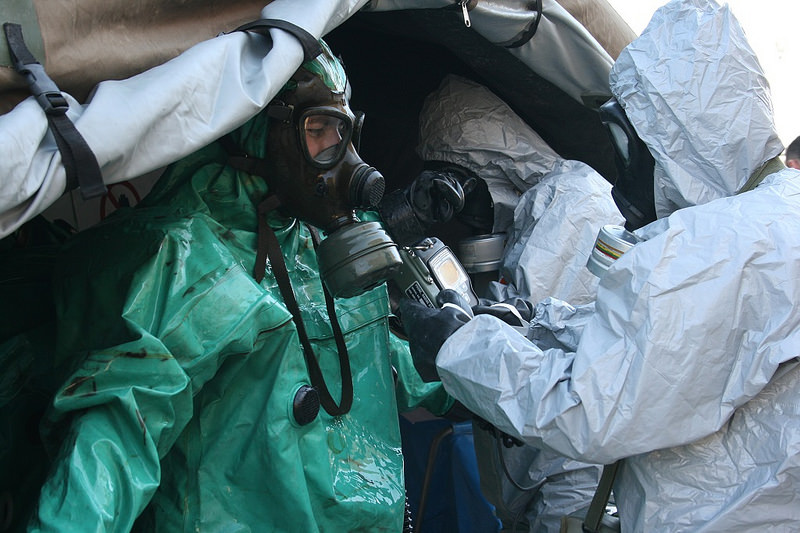A security intelligence agency gathers information and conducts investigations for national security purposes, whereas a foreign intelligence agency gathers information from abroad through human sources or Human Intelligence (HUMINT). Determining if it’s in Canada’s interests to establish a foreign intelligence agency depends on whether current information needs are being met, or whether limitations justify the founding of such an agency. For the purposes of this article, this hypothetical agency exclusively focused on foreign intel gathering will be called the Canadian Foreign Intelligence Service (CFIS). Currently no intelligence organization in Canada holds a foreign intelligence mandate, though existing Canadian intelligence organizations do have restricted mandates to collect information and investigate national security threats abroad.
The Canadian Security Intelligence Service (CSIS) is the civilian security intelligence agency currently responsible for defending Canadian national security. Other organizations make up the Canadian intelligence community. Those include the RCMP, the Canadian Forces Intelligence Command, the Communications Security Establishment (CSE), and the Security Intelligence Bureau within the Department of Global Affairs Canada (GAC). Each of these organizations does have limited foreign intelligence gathering capacity that include restricted HUMINT capabilities. Canada also relies on intelligence from sharing agreements with other allied nations.
One of the main arguments behind the creation of CFIS is that Canadian troops are currently engaged in Iraq and Syria, combating the Islamic State of Iraq and the Levant (ISIL), and may be involved in peacekeeping operations in Africa aimed at countering Jihadist elements in the Sahel region. These current and potential foreign interventions to prevent Islamic terrorists from using fragile and failed States as safe havens to launch attacks against Canada or its overseas interests. Ottawa’s stepped-up engagement in the world requires increased proactive intelligence capabilities. Barry Cooper, professor at the University of Calgary, argues that a current problem with Canadian intelligence capabilities is that “counterespionage programs of CSIS are hampered by the lack of foreign information about hostile countries that can be collected only through counter-intelligence operations abroad.” The incredible difficulty in tracking terrorist networks is even greater without a proactive intelligence strategy that maintains vigilant awareness of extremist activity.
Another major argument favouring the establishment of CFIS is the downside that comes with a dependence on allied intelligence sharing. LCdr Ted Parkinson states that shared intelligence can reflect “a producing nation’s bias,” which Canada would be unable to determine without an ability to “asses our own raw data based on Canadian requirements.” Canada must depend on intelligence shared by allies due to its inability to collect foreign intelligence, which risks advancing foreign allied state interests in the development of Canadian security policy. In the very least, as Professor Cooper claims, this requires Canada to take the intelligence shared by allies at “face value,” without being able to verify independently the given intelligence.
Daniel Livermore, former Canadian Foreign Services Officer, outlines three plausible options for a Canadian foreign intelligence service. The first, legally establishes a foreign intelligence agency with its own budget and director, operating under the appropriate minister.
The second option is to establish these foreign intelligence gathering capabilities within CSIS’ mandate, expanding its powers as required. Currently, CSIS’ mandate is to collect security intelligence in Canada, and although it doesn’t have a HUMINT mandate, it does have specific and restricted abilities to collect foreign intelligence for national security investigations. Recent amendments to the CSIS Act in 2014 under Bill C-44 granted the Agency intelligence gathering powers to collect and conduct investigations on threats to Canadian national security “within or outside Canada.”
However, the first two options might not be the best ways in founding a foreign intelligence agency due to Canada’s lack of experience at HUMINT gathering. Unlike most western allies, Canada did not establish a foreign intelligence agency following the Second World War, and has relied significantly on allies for intelligence. This lack of experience could “compromise sources and embarrass both the organization and parent nation,” warns LCdr Ted Parkinson, demonstrating the importance of gradually increasing capabilities over time to develop a solid reputation.
To overcome this challenge, the third option consists of gradual and incremental improvements of current capabilities present in Canada’s different intelligence organizations with the long-term end result being the creation of CFIS. Livermore recognizes “several virtues” to “starting slowly and building [CFIS] incrementally under a Foreign Affairs mandate.” This would help avoid international risks by keeping HUMINT capabilities within the realm of the diplomatic expertise of GAC. LCdr Parkinson argues this slow accumulation of foreign intelligence capabilities is the “key to success,” as “it must be implemented via an incremental approach.”
Keeping foreign intelligence capabilities within the mandate of a department that has vast experiences in diplomacy will help develop Canadian foreign intelligence experience, while limiting mistakes that could be made by a new or current organization without such international expertise. Once Canadian foreign intelligence gathering capabilities through HUMINT are mature enough, the creation of an independent foreign intelligence agency in Canada may become a possibility. One must realize that such an effort will take years and must be gradual to ensure strong and reputable experience is developed and maintained.
Photo: Parliament Hill (2012) via Flickr. Creative Commons. Photo courtesy of CC BY 2.0.
Disclaimer: Any views or opinions expressed in articles are solely those of the authors and do not necessarily represent the views of the NATO Association of Canada.




